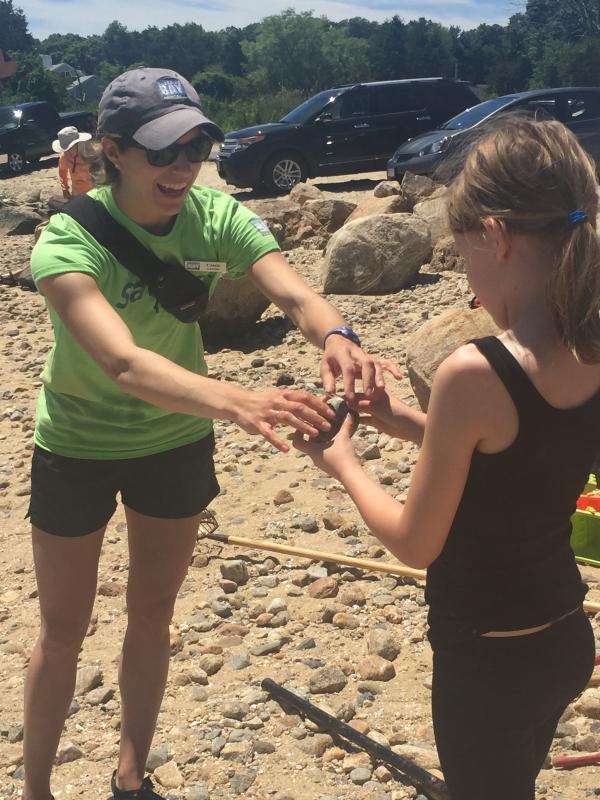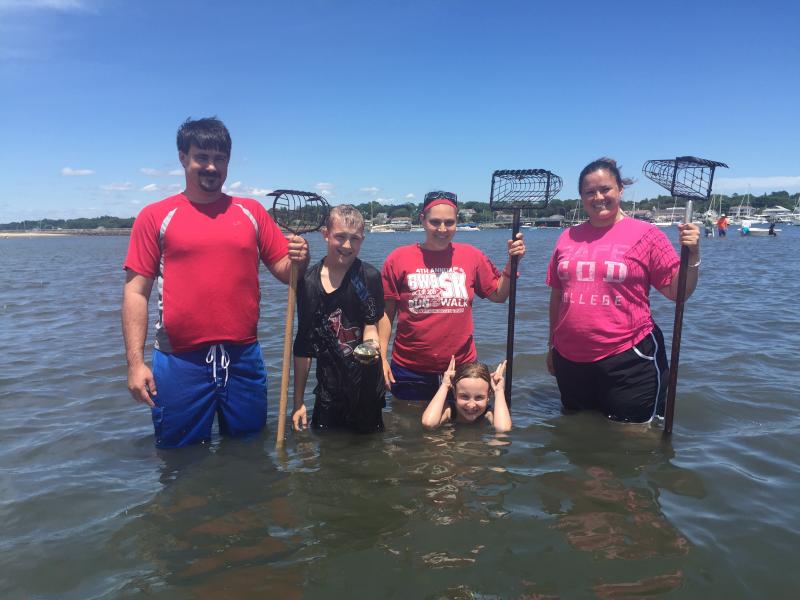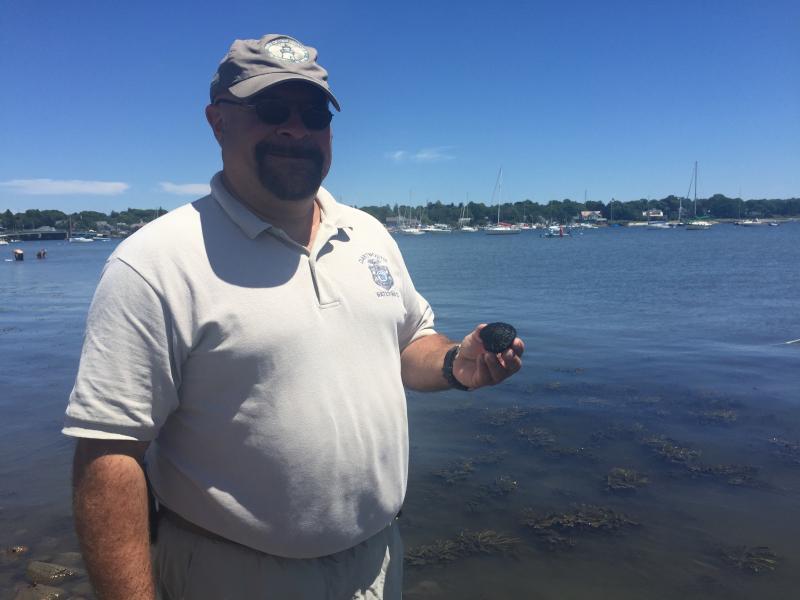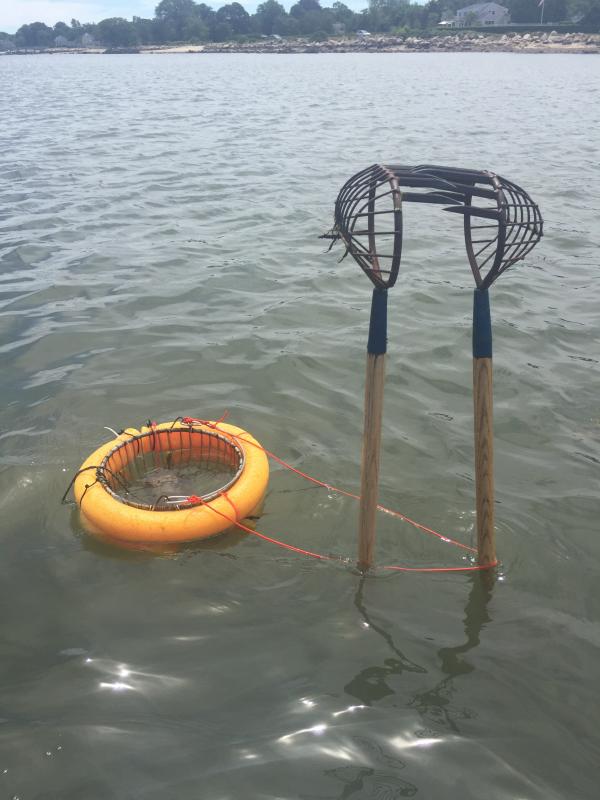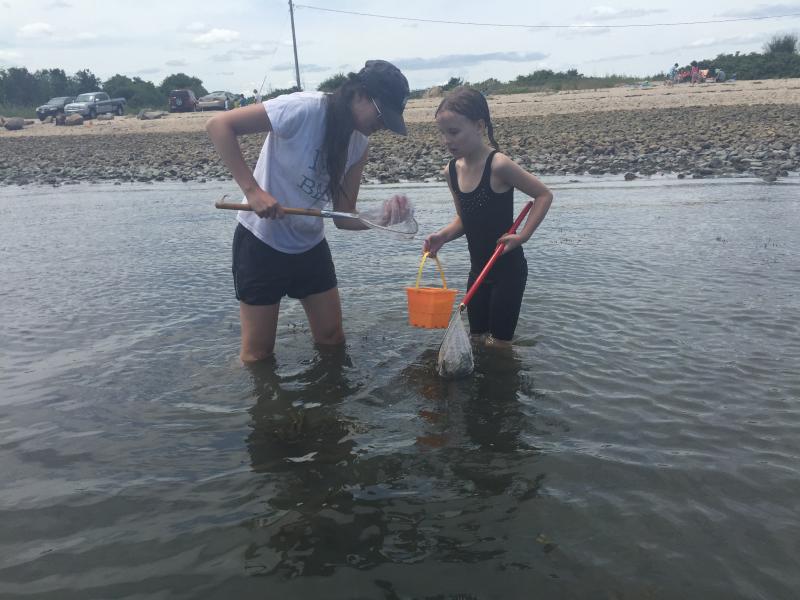Beginners try quahogging with the Buzzards Bay Coalition, Dartmouth harbormaster
The ocean stood at mid-tide next to Smith Neck Road, allowing the 40 people attending the free quahogging demonstrations on that beach a chance to see the periwinkles dotting the sea floor.
The Buzzards Bay Coalition linked up with Dartmouth Harbormaster and Shellfish Constable Steve Melo to present “Learn to Quahog” on July 2. The Coalition—a local nonprofit dedicated to improving the Bay ecosystem through education, conservation, and science—provided attendees with rakes, peck baskets, and waders for the two, one-hour sessions.
“I think overall, people were really happy and excited to dig for quahogs,” said the Coalition’s outdoor educator, Cassie Lawson. “We had a lot of people walk up, which was great.”
Lawson started each session with an introduction to Buzzards Bay, quahogs, and shellfishing. Quahogs live a couple inches under the sand, while bay scallops live in eelgrass beds, she said, before going on to explain the laws that regulate quahogging.
“I am enthusiastic to bring the Coalition’s expertise to people who want to enjoy our natural resources,” said Melo, who is responsible for checking shellfish permits. Those at the demonstration without a permit could only catch and release.
Dartmouth resident Tom Pratt took home a full peck basket—the daily limit of quahogs an individual can take is one peck; the weekly limit is half a bushel—as he went to Town Hall for his shellfishing permit earlier in the week specifically for the occasion.
“My kids gave me a quahog rake for Father’s Day and told me I need to find a way to relax,” he laughed. “Then this popped up,” he said, referring to the event.
Nearby, a family of five dug through the water. Kevin Thompson had brought his children Quinn and Addison to the quahogging event to pass on a bit of family history.
“I wanted to bring our kids out and show them what I used to do as a kid,” said Thompson, who said he’d gone quahogging several times with his grandfather in Marion.
“Our grandfather used to do this and I had never experienced it before,” said his sister Jo-Ellen Thompson, who had joined the crew.
Quinn and Addison eventually joined Coalition volunteer Tanya Creamer to catch minnows. Creamer identified a grass shrimp in their net as well.
Melo said his team has been working to restore the natural quahog stock by growing them from seed. “We’re letting them grow, letting them multiply,” he said.
The Buzzards Bay Coalition will be hosting more quahogging demos, but its next Dartmouth-based event will be the Sunday Stroll at Destruction Brook Woods on July 3 at 10 a.m. Visit savebuzzardsbay.org for more information.
